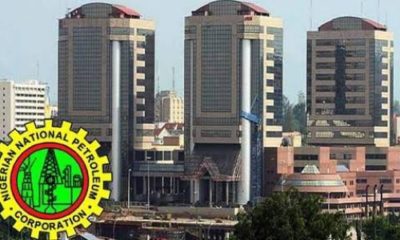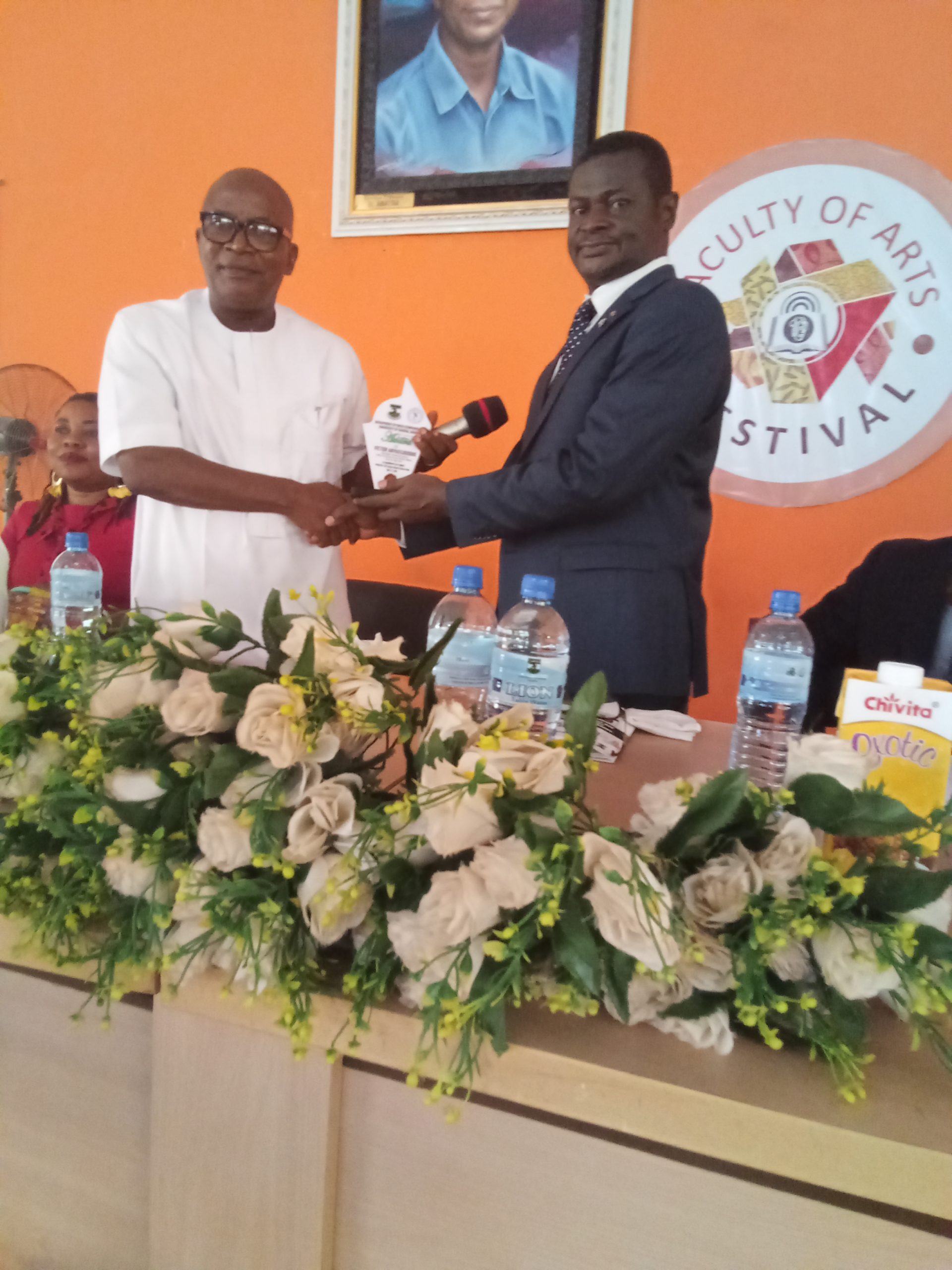NEWS
SERAP Files Lawsuit Against NNPC
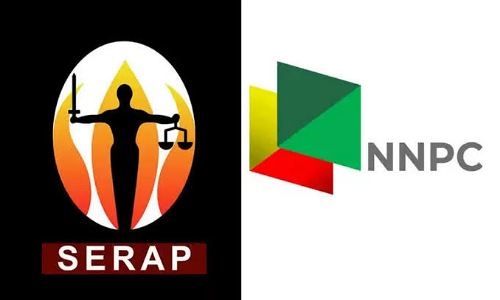
The Socio-Economic Rights and Accountability Project (SERAP) has taken legal action against the NNPC Limited, pressing for details on Nigeria’s oil production, exports, and revenue post-subsidy removal in May 2023.
Kolawole Oluwadare, SERAP’s Deputy Director, disclosed this in a statement on Sunday.
Sanusi Lamido Sanusi, ex-Governor of the Central Bank of Nigeria, recently accused the NNPC of inadequate foreign exchange remittance to the treasury post-fuel subsidy removal.
He posed the question, “Where is the money?”
In the suit number FHC/ABJ/CS/1719/2023 filed last Friday at the Federal High Court in Abuja, SERAP is seeking: “an order of mandamus to direct and compel the NNPC to disclose details of barrels of oil Nigeria produces and exports daily and the total amounts of revenues generated since the removal of subsidy on petrol.”
SERAP is seeking: “an order of mandamus to compel the NNPC to disclose how much of the revenues generated from the production and exportation of oil have been remitted to the public treasury since the removal of subsidy on petrol.”
SERAP is also seeking: “an order of mandamus to direct and compel the NNPC to disclose details of payment of 11 Trillion Naira made as subsidy payments from 1999 to May 2023, including a detailed breakdown of the payments made.”
In the suit, SERAP is arguing that: “There is a legitimate public interest in disclosing the information sought. The NNPC has a legal responsibility to disclose the details of Nigeria’s daily oil production, exportation and the revenues generated and remitted.”
SERAP is also arguing that, “Nigerians have the right to know the amounts of barrels of oil the country produces and exports daily, the revenues generated and remitted to the public treasury.” Compelling the NNPC to disclose these details would promote transparency and accountability in the oil sector.”
According to SERAP, “The failure by the NNPC to disclose the information sought is a grave violation of the provisions of the Nigerian Constitution 1999 [as amended], the Freedom of Information Act, and the country’s obligations under the African Charter on Human and Peoples’ Rights.”
SERAP is arguing that, “Transparency would ensure that the revenues generated from Nigeria’s daily oil production and exportation are not diverted into private pockets, and increase public confidence that the revenues would be used to benefit Nigerians.”
In the lawsuit filed by SERAP’s lawyers Kolawole Oluwadare and Andrew Nwankwo, it was stated, “Nigeria’s daily oil production, exportation and the revenues generated have been mostly shrouded in secrecy.
“Disclosing the amounts of barrels of oil the country produces and exports daily, the revenues generated and remitted to the public treasury would also ensure that the NNPC operates within the law.
“Transparency and accountability in the amounts of barrels of oil the country produces and exports daily, the revenues generated and remitted to the public treasury would improve the enjoyment by Nigerians of their right to natural wealth and resources.
“The public interest in publishing the information sought outweighs any considerations to withhold the information.
“Despite the country’s enormous oil wealth, ordinary Nigerians have derived very little benefit from oil money primarily because of widespread grand corruption, and the culture of impunity of perpetrators.”
“Combating the corruption epidemic in the oil sector would alleviate poverty, improve access of Nigerians to basic public goods and services, and enhance the ability of the government to meet its human rights and anti-corruption obligations.”
“Section 15(5) of the Nigerian Constitution 1999 (as amended) requires public institutions and officials to abolish all corrupt practices and abuse of power. Section 16(2) of the Nigerian Constitution further provides that, ‘the material resources of the nation are harnessed and distributed to serve the common good.’”
“Section 13 of the Nigerian Constitution 1999 imposes clear responsibility on the NNPCL to conform to, observe and apply the provisions of Chapter 2 of the constitution.”
“Nigeria has made legally binding commitments under the UN Convention against Corruption and the African Union Convention on Preventing and Combating Corruption to ensure transparency and accountability in the management of public resources.”
“Articles 5 and 9 of the UN Convention against Corruption also impose legal obligations on the NNPCL to ensure proper management of public affairs and public funds. These commitments ought to be fully upheld and respected.”
“Nigerians are entitled to the right to receive information without any interference or distortion, and the enjoyment of this right should be based on the principle of maximum disclosure, and a presumption that all information is accessible subject only to a narrow system of exceptions.”
“By Section 1 (1) of the Freedom of Information (FoI) Act 2011, SERAP is entitled as of right to request for or gain access to information, including information on the details of barrels of oil Nigeria produces and exports every day and the total amounts of revenues generated and remitted to the public treasury.”
“According to the former Governor of the Central Bank of Nigeria (CBN), Sanusi Lamido Sanusi, ‘It is only the NNPCL that can give the figures about how much oil we produce daily, how much we sell, and where the money is going. We are no longer paying subsidies so where are the dollars? Where is the money?’”
“The NNPCL has a legal responsibility to promote transparency and accountability in the country’s daily oil production, exportation and the revenues generated and remitted to the public treasury. The NNPLC also has a legal responsibility to disclose details of payment of N11 trillion subsidy.”
A specific date for the suit’s hearing has not yet been scheduled.
NEWS
Osun Logo Competition Closes, Panel of Judges Named

The Osun State Government has disclosed that submission of entries for the state’s logo design competition has come to an end.
This was contained in a statement in Osogbo on Friday.
Consequently, the state government has named a panel of judges to review the entries and nominate the first top three from the over hundred submissions.
According to the statement, “The panel includes veteran broadcaster, Olusola Ajala; brand specialist, Dayo Oderinu; senior bureaucrat, Moshood Suleiman; Segun Yedupe and ace graphic artist, Kazeem Olalekan.”
It added that the next step would be a review of all entries by the panel of judges, after which the best three designs would be unveiled by His Excellency, Governor Ademola Adeleke, on the 30th of April, 2024.
“As a Government, we are deeply impressed by the incredible talents demonstrated by every participant.
“The competition has once again proven the creativity and the abundance of talents possessed by Osun indigenes, whether at home or away,” it added.
The statement also noted that while the competition lasted, participants showed exceptional efforts as reflected in the thousands of entries recorded.
NEWS
Abuja American School Refunds $760k For Yahaya Bello’s Children – EFCC
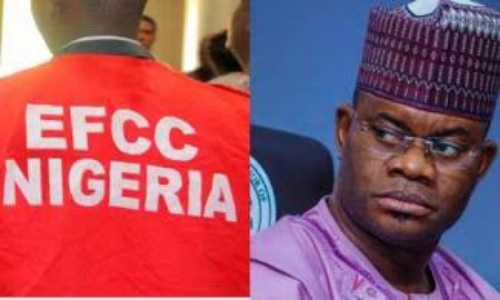
The Economic and Financial Crimes Commission (EFCC) has acknowledged the reimbursement of $760,000.00 initially paid by former Kogi State Governor Yahaya Bello as advance school fees for his children attending the American International School, Abuja.
EFCC spokesperson Dele Oyewale confirmed this update in Abuja on Friday.
He said, “The school has refunded the entire $ 760, 000 to the EFCC’s recovery account.”
Earlier, the American International School of Abuja had urged the EFCC to provide valid banking information for the reimbursement of fees paid for the ex-governor’s children.
Allegedly, Bello used $720,000 from Kogi State Government funds to prepay tuition for five of his children enrolled in Grades 2 to 8.
Recall that on April 17, EFCC operatives besieged Bello’s residence in Abuja in a bid to apprehend him regarding an alleged N80.2 billion fraud.
During the operation at the residence, Kogi State Governor Usman Ododo reportedly arrived and escorted Bello away.
In a letter directed to the Lagos Zonal Commander of the EFCC, the school stated that $845,852 had been paid in tuition “from September 7, 2021, to the present.”
AISA noted that $760,910 is the refundable amount after deducting already provided educational services.
The letter reads “Please forward to us an official written request, with the authentic banking details of the EFCC, for the refund of the above-mentioned funds as previously indicated as part of your investigation into the alleged money laundering activities by the Bello family.
“Since the 7th September 2021 to date, $845,852.84 in tuition and other fees have been deposited into our bank account.
The calculated net amount to be transferred and refunded to the State, after deducting the rendered educational services, stands at $760,910.84.
“No further additional fees are anticipated for tuition as the students’ fees have been settled until their graduation from ASIA.”
The school stated that it would alert the anti-graft agency if any further deposits were made by the Bello family.
In a statement signed by Greg Hughes, AISA also disclosed, “Ali Bello contacted the school on Friday, August 13, 2021, requesting to prepay the family’s school fees until the students graduate from High School.”
EFCC Chairman, Ola Olukoyede previously disclosed that the former governor transferred $720,000 from the government’s funds to a bureau de change before leaving office, intending to prepay his child’s school fees.
Olukoyede made this revelation during an interview with journalists in Abuja on Tuesday.
He stated, “A sitting governor, because he knows he is going, moved money directly from government to bureau de change, used it to pay the child’s school fee in advance, $720,000 in advance, in anticipation that he was going to leave the Government House.
“In a poor state like Kogi, and you want me to close my eyes to that under the guise of ‘I’m being used.’ Being used by who at this stage of my life?”he added
NEWS
Entrenching Trust In Medical Laboratories Through Service Quality, ISO 15189 Accreditation
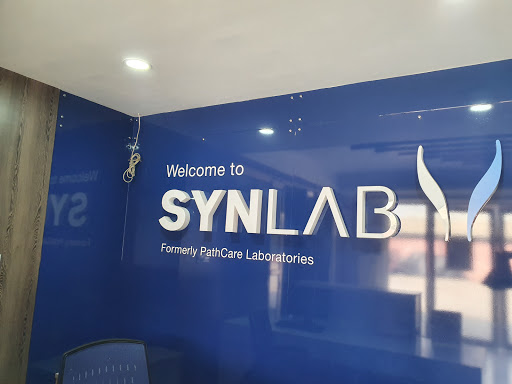
Relevant stakeholders opine that trust and quality are paramount in the realm of healthcare.
Patients rely on medical laboratories for accurate and reliable test results, as the foundation of diagnosis and treatment.
Hence, the ISO 15189 accreditation stands as a beacon, because it guides laboratories towards the establishment of a stringent quality management system.
Biztellers reports that the ISO 15189 is an international standard specific for medical laboratories. It outlines the requirements for quality and competence that laboratories need to meet to ensure accurate and reliable testing, calibration, and sampling processes.
This is why accreditation against this standard indicates that a laboratory has not just established, but is operating a quality management system and adheres to stringent requirements of the standard.
This clarification highlights the multifaceted benefits of ISO 15189 accreditation in enhancing patient trust and service quality within medical laboratories.
What then are the benefits of ISO 15189 accreditation to the provision of medical laboratory services?
A Vivid Scenario
Supposing that a patient, Adeola Adeolu (not real names), seeks diagnostic services at SYNLAB Nigeria.
And assuming that he was initially hesitant about the accuracy of test results, his concerns could be assuaged upon learning from his referral doctor that SYNLAB Nigeria does not compromise on quality because of its ISO 15189 accreditation.
Knowing that SYNLAB has this accreditation instills confidence in Adeolu, because it reinforces the reliability and credibility of the laboratory’s services.
Armed with the trust, Adeolu proceeds with the tests, confident in SYNLAB Nigeria’s commitment to excellence.
Biztellers shares below discerning members of the public look out for the ISO 15189
- ISO 15189 accreditation requires medical laboratories to adhere to a comprehensive framework for implementing quality management systems in order to ensure consistent and reliable test results. Such a guide enables organizations to access best practices and consistently implement them.
- Adhering to ISO 15189 standards requirements enhances patient safety by minimizing errors and ensuring accurate diagnostic outcomes. Adeolu’s confidence in accepting to run tests at SYNLAB Nigeria because of its ISO 15189 accreditation hinges on his belief that he would get accurate results.
- ISO 15189 accreditation elevates the global recognition of medical laboratories, facilitating collaborations and partnerships with healthcare institutions worldwide. Customers of an ISO 15189 certified laboratory can be confident that the result they receive from their laboratory will be acceptable across the globe.
- Accreditation under ISO 15189 indicates that the laboratory is meeting regulatory obligations, promoting ethical practices and is a legally responsible organization.
- Emphasizing staff competence and training, ISO 15189 accreditation affirms that laboratory personnel possess the necessary skills to maintain high-quality standards in laboratory operations. ISO 15189 accredited laboratories pay attention to staff training, recognizing that maintaining high quality requires having highly competent team.
- ISO 15189 standard requirements incorporate risk management principles, enabling laboratories to identify and mitigate potential risks effectively, thus ensuring patient safety. It fosters a culture of continuous improvement within medical laboratories, driving innovation and excellence in service delivery.
- ISO 15189 accreditation distinguishes laboratories as leaders in quality healthcare delivery, providing a competitive advantage and attracting patients and healthcare providers seeking reliable diagnostic services.
Conclusion
The ISO 15189 accreditation serves as a symbol for excellence in medical laboratories, enhancing patient trust and assuring service quality.
SYNLAB Nigeria’s embrace of this international standard and compliance with its requirements solidifies its position as a trusted partner in healthcare delivery. As the healthcare landscape evolves, ISO 15189 accreditation will remain indispensable tool, driving innovation, patient-centered care, and unwavering confidence in medical laboratories worldwide.
About SYNLAB Nigeria
SYNLAB Nigeria is a member of the SYNLAB group, with presence in 35 countries in four continents.
The organization has over 30 active locations across Nigeria and has been ISO 15189 certified since 2006.
SYNLAB Group is the leader in medical diagnostic services and specialty testing in Europe.
The Group offers a full range of innovative and reliable medical diagnostics to patients, practicing doctors, hospitals and clinics, governments and corporates.
Providing the leading level of service within the industry, SYNLAB is the partner of choice for routine and specialty diagnostics in human and veterinary medicine. The Group continuously innovates medical diagnostic services for the benefit of patients and customers.
SYNLAB holds leading positions in most markets, regularly reinforcing the strength of its network through a proven acquisition strategy.









